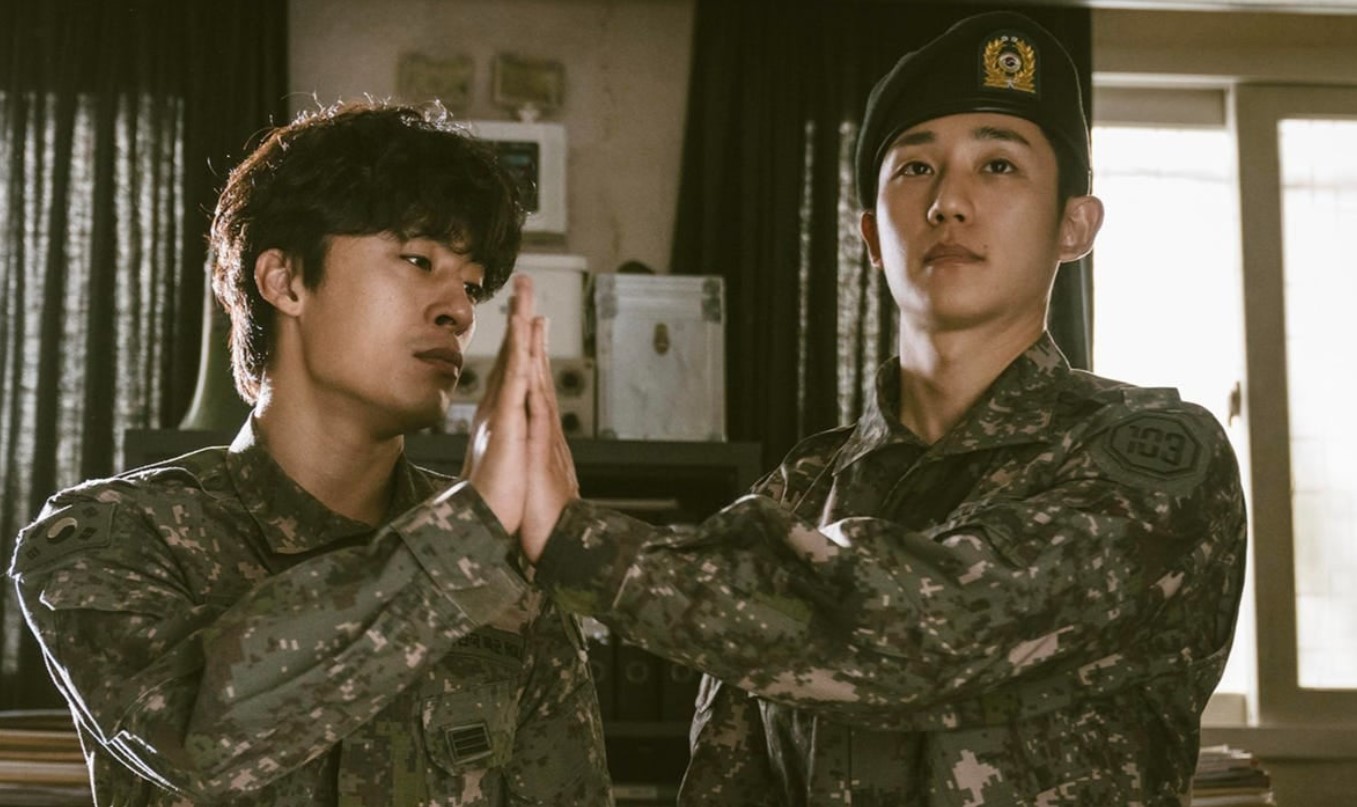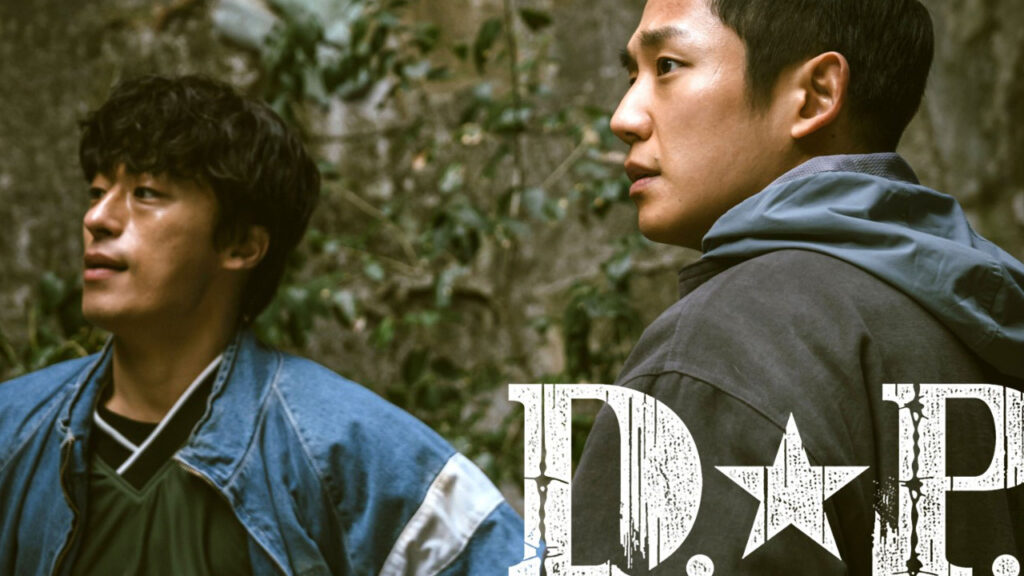
DP Season 1 Full Review: Uncovering the Dark Secrets and Jaw-Dropping Moments You Can’t Miss
What happens when a K-Drama doesn’t just entertain—but exposes the painful truths hiding in plain sight? DP Season 1 does exactly that. Gripping, emotional, and disturbingly real, this military-based drama has left viewers shaken and deeply moved. If you’re wondering whether this series is worth your time, this DP Season 1 Full Review will give you the complete breakdown—no spoilers, just insights.
From the dark secrets of army life to jaw-dropping moments that demand your attention, we’re diving into everything that makes DP more than just a drama. Ready to discover what everyone’s talking about—and why it matters?
Table of Contents
ToggleWhat is DP? A Quick Synopsis
 DP (short for Deserter Pursuit) is a critically acclaimed Korean drama that premiered on Netflix in 2021. Set within the harsh environment of South Korea’s mandatory military service, the story follows Private An Jun-ho, a quiet yet observant soldier, who is recruited into a special unit tasked with tracking down military deserters.
DP (short for Deserter Pursuit) is a critically acclaimed Korean drama that premiered on Netflix in 2021. Set within the harsh environment of South Korea’s mandatory military service, the story follows Private An Jun-ho, a quiet yet observant soldier, who is recruited into a special unit tasked with tracking down military deserters.
But DP isn’t just a military chase drama—it’s a hard-hitting exploration of the brutal realities faced by young soldiers. As Jun-ho and his partner Han Ho-yeol go from base to base chasing AWOL soldiers, they uncover deeply personal stories of abuse, trauma, and injustice that challenge their sense of duty.
What starts as a routine assignment slowly turns into a dark journey through a system riddled with bullying, emotional scars, and moral dilemmas. DP Season 1 grips you not just with suspense, but with the heartbreaking humanity of the people behind the uniforms.
Dark Secrets Revealed: Themes and Social Commentary
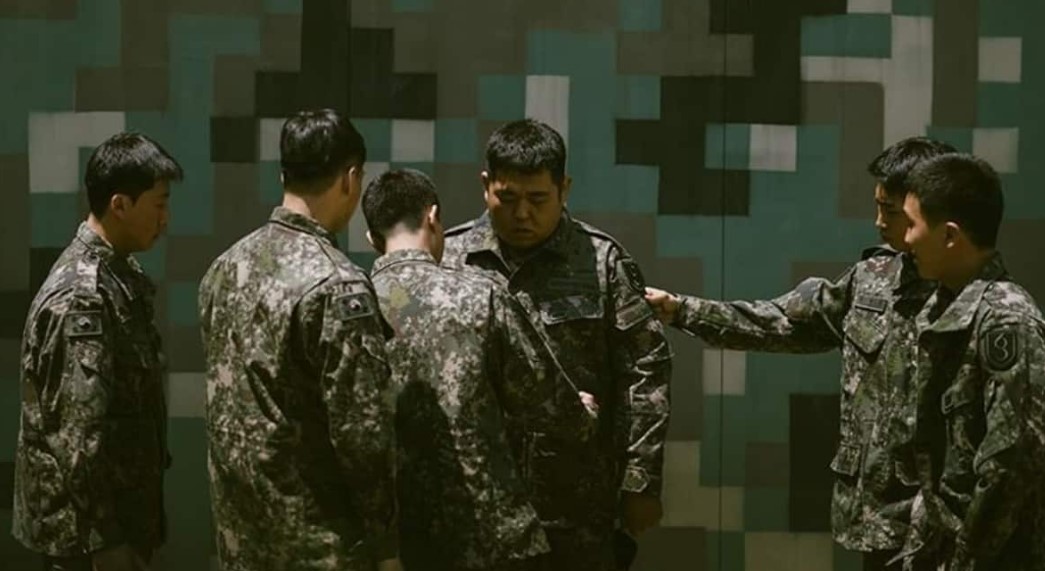 What sets DP apart from most K-Dramas is its raw, unfiltered look at the hidden darkness within South Korea’s military system. Underneath its suspenseful storyline, DP Season 1 reveals harsh truths that many people—especially international viewers—might not be aware of.
What sets DP apart from most K-Dramas is its raw, unfiltered look at the hidden darkness within South Korea’s military system. Underneath its suspenseful storyline, DP Season 1 reveals harsh truths that many people—especially international viewers—might not be aware of.
1. Bullying and Hazing Culture
One of the most disturbing themes in DP is the systemic bullying within the military ranks. New recruits, especially those who are physically or emotionally vulnerable, often become targets of relentless abuse from their superiors or fellow soldiers. The drama doesn’t shy away from showing how normalized this violence is—and how it breaks people.
2. Mental Health and Trauma
DP shines a spotlight on the mental health crisis among soldiers. Many of the deserters aren’t cowards—they’re victims. Suffering from depression, PTSD, or anxiety, these characters expose how little support exists for struggling soldiers, and how silence can become deadly in a system built on obedience.
3. The Flawed System of Authority
The drama also critiques the blind obedience and hierarchical oppression that dominate the military structure. Characters often face a moral dilemma: follow orders and stay safe, or speak out and risk punishment. This tension creates an ongoing conflict that adds real-world weight to the drama.
4. Societal Pressure and Masculinity
DP tackles how societal expectations of being a “strong man” lead to emotional repression. Soldiers are told to endure, not feel. The show asks: What happens when those feelings finally explode?
Why This Matters:
By focusing on these painful realities, DP Season 1 doesn’t just tell a gripping story—it challenges viewers to question the systems we take for granted. For Korean audiences, it reflects real-life headlines. For global viewers, it opens eyes to an invisible war fought within the ranks.
This isn’t just fiction. These are stories of people who’ve suffered in silence—and DP gives them a voice.
Jaw-Dropping Moments That Define Season 1
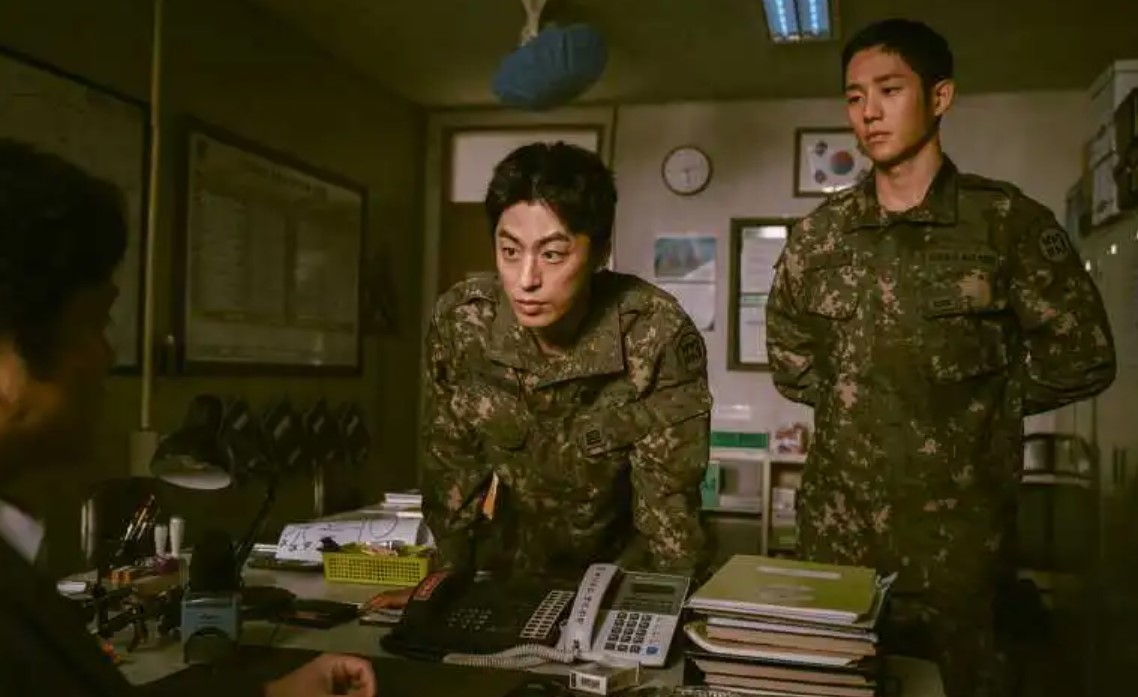 DP Season 1 isn’t just emotionally powerful—it’s packed with unforgettable scenes that leave you stunned, angry, or in tears. These moments don’t rely on flashy plot twists; instead, they hit hard because they feel real. Every jaw-dropping scene is a mirror reflecting the cost of silence, cruelty, and unresolved pain.
DP Season 1 isn’t just emotionally powerful—it’s packed with unforgettable scenes that leave you stunned, angry, or in tears. These moments don’t rely on flashy plot twists; instead, they hit hard because they feel real. Every jaw-dropping scene is a mirror reflecting the cost of silence, cruelty, and unresolved pain.
⚠️ Note: This section avoids major spoilers but touches on emotionally intense themes.
1. Deserters’ Stories That Hit Too Close to Home
Each episode introduces a different deserter—and with them, a new story of suffering. One man runs to escape unbearable abuse, another leaves because of a personal loss. What makes these stories shocking isn’t just what happened to them, but how normal those situations are in the system they’re trapped in. These aren’t criminals—they’re casualties of a broken environment.
2. The Brutality Behind the Uniform
There are several scenes where physical and emotional violence unfolds with chilling realism. These moments often come suddenly, without dramatic build up—mirroring how trauma often strikes in real life. Viewers are left speechless, not because of gore, but because of how quietly cruel the system can be.
3. Moral Dilemmas With No Right Answer
Some of the most gripping moments in DP happen when Jun-ho must decide between following orders or listening to his conscience. These scenes aren’t just about action—they’re about what kind of person you choose to be when you realize the system is broken.
4. An Ending That Stays With You
The final episode delivers a gut-punch that reframes everything you’ve seen. It’s not a neatly wrapped resolution—instead, it leaves you with questions, emotions, and a deep sense of injustice. This is where DP separates itself from typical dramas: it wants you to feel uncomfortable because real change doesn’t come from comfort.
Why These Moments Matter:
These jaw-dropping scenes aren’t just dramatic—they’re designed to spark conversation, reflection, and awareness. Every twist, every emotional breakdown, every silent cry for help pushes the viewer to confront questions society often ignores.
This isn’t just a drama you watch. It’s a reality you feel. And that’s what makes DP Season 1 unforgettable.
Characters and Performances: Who Steals the Show?
What truly elevates DP Season 1 from a gripping drama to a powerful emotional experience is its phenomenal cast. The characters feel real—not just because of the writing, but because the actors breathe life into them with raw, nuanced performances. Each role adds layers to the story, and some will stay with you long after the credits roll.
Jung Hae-in as Private An Jun-ho
As the quiet, observant protagonist, Jung Hae-in delivers a performance that is both subtle and deeply expressive. Through Jun-ho’s eyes, we experience the emotional weight of chasing deserters and confronting the harsh military reality. His inner conflict—torn between duty and empathy—is portrayed with incredible restraint and power.
Why he stands out:
- Captures the complexity of moral dilemmas
- Makes you feel his discomfort, confusion, and growth
- A perfect fit for a role that requires more than just lines—it demands emotion between the silences
Koo Kyo-hwan as Corporal Han Ho-yeol
The heart and humor of the show, Han Ho-yeol brings levity and unpredictability to a dark narrative. His chemistry with Jun-ho is a major highlight. Koo Kyo-hwan’s charismatic, offbeat performance adds balance to the heavy tone, making him a fan favorite.
Why he steals every scene:
- Unexpected comedic timing that never feels forced
- Layers of mystery beneath his easygoing exterior
- Emotional depth that reveals itself as the series unfolds
The Deserters: One-Off Roles That Leave a Lasting Impact
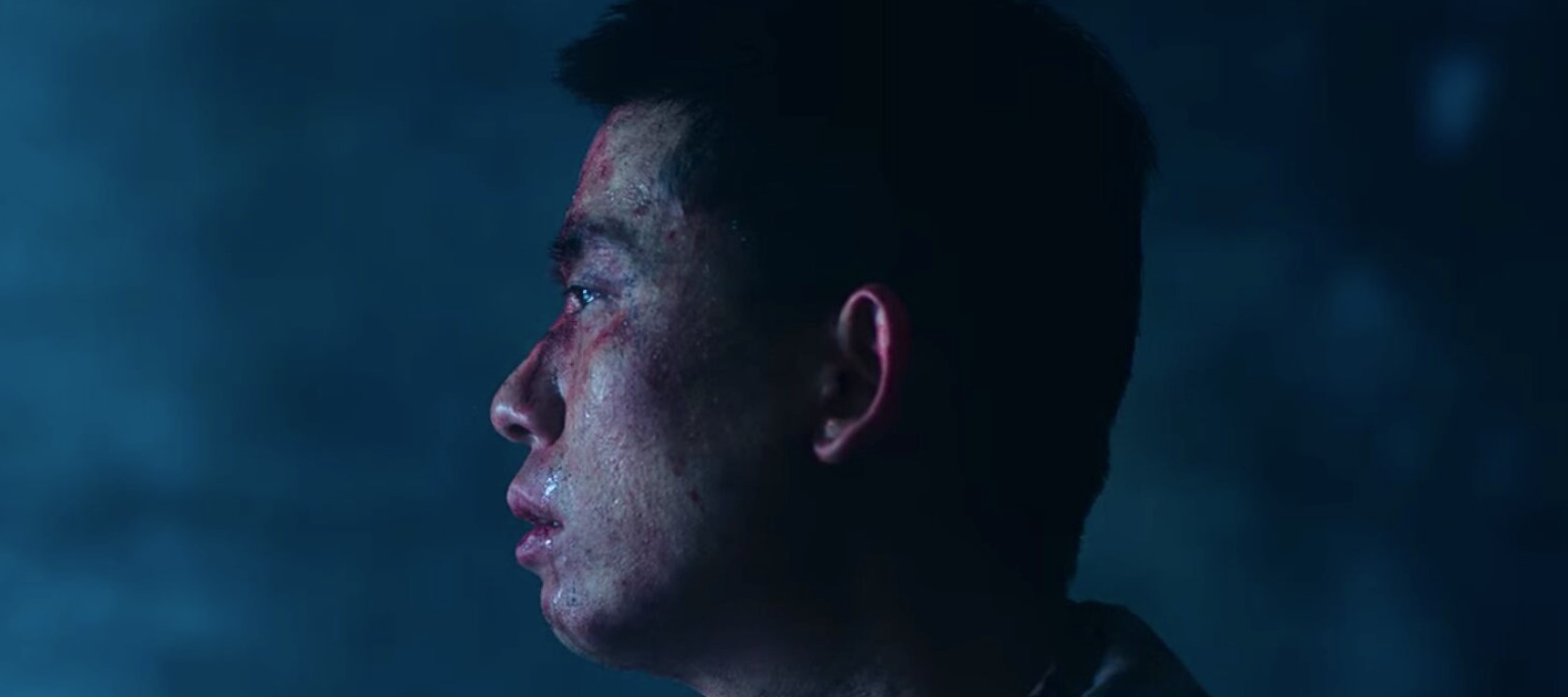 Though they appear briefly, the deserters are unforgettable. Each actor portraying a runaway soldier gives a raw, heartbreaking performance. Whether they’re desperate, broken, or angry, their stories feel painfully real.
Though they appear briefly, the deserters are unforgettable. Each actor portraying a runaway soldier gives a raw, heartbreaking performance. Whether they’re desperate, broken, or angry, their stories feel painfully real.
Standout mentions:
- Episode 2’s emotionally wrecked deserter—portrayed with haunting realism
- Final episode’s troubled soldier—whose breakdown becomes a defining moment of the season
Supporting Cast That Amplifies the Tension
From cold commanders to indifferent superiors, the supporting characters reflect the broken system. While not all are sympathetic, their roles are essential in building the oppressive atmosphere that DP thrives on.
Why This Matters:
Every character in DP contributes to its emotional power and realism. The performances are not just good—they’re authentic, making viewers connect deeply with each story. Whether it’s the quiet heartbreak of Jun-ho or the unpredictable energy of Ho-yeol, the cast transforms this series into something unforgettable.
In DP it’s not just the story that grabs you—it’s the people living it.
Production Quality: Direction, Cinematography, and Soundtrack
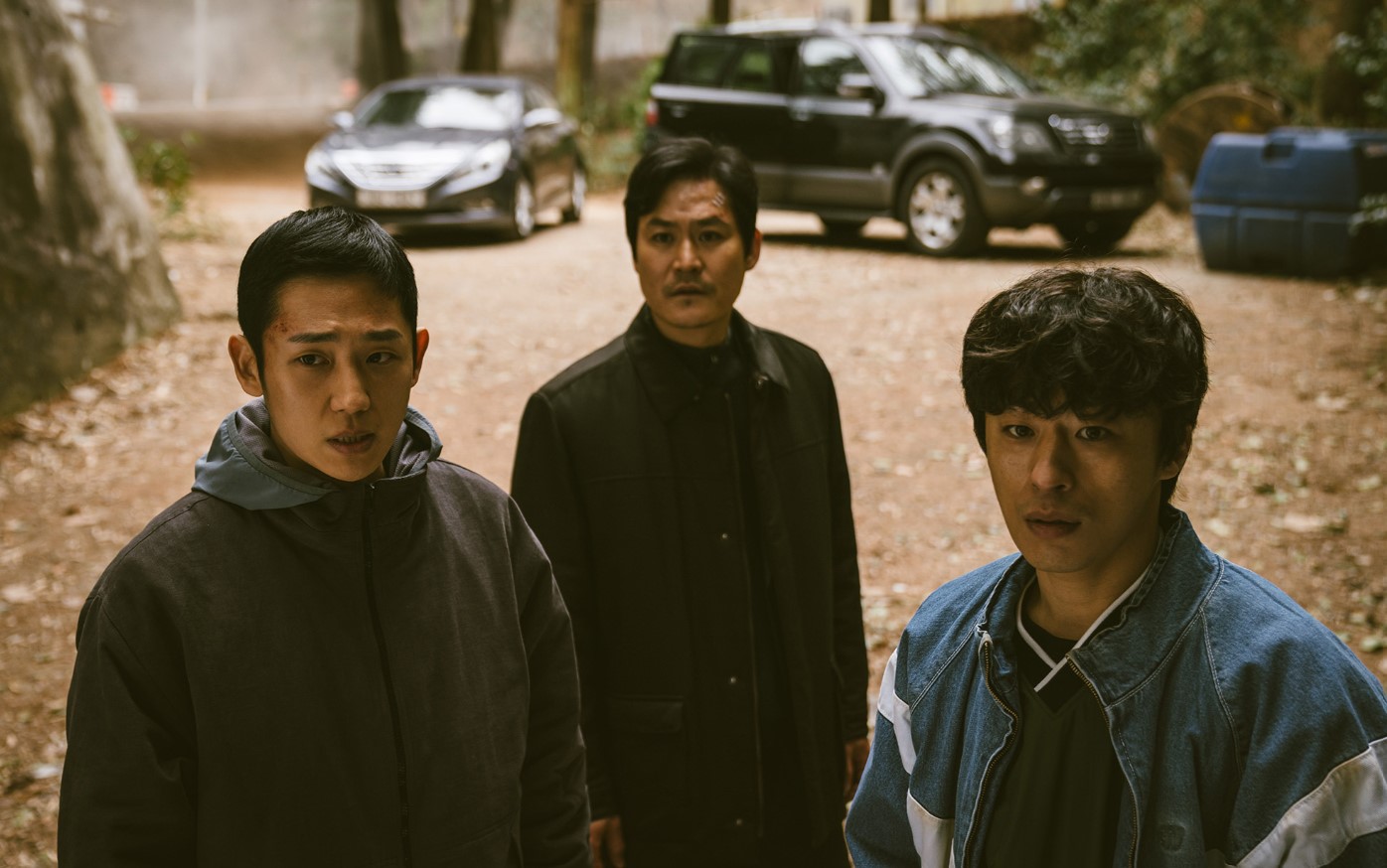 While DP Season 1 is celebrated for its storytelling and performances, its technical brilliance is equally responsible for creating a powerful and immersive viewing experience. From gritty visuals to haunting audio, every production element is designed to pull you into the world—and keep you there.
While DP Season 1 is celebrated for its storytelling and performances, its technical brilliance is equally responsible for creating a powerful and immersive viewing experience. From gritty visuals to haunting audio, every production element is designed to pull you into the world—and keep you there.
Direction: Minimalist Yet Emotionally Explosive
Directed by Han Jun-hee, DP is carefully crafted to feel real without being overly dramatic. The pacing is deliberate—allowing emotional beats to breathe and heavy scenes to land with full force. There’s no need for flashy gimmicks; the direction trusts the story and the characters to speak for themselves.
Notable direction strengths:
- Builds tension without melodrama
- Balances quiet reflection with sudden intensity
- Focuses on realism over romanticization
Cinematography: Gritty, Grounded, and Uncomfortably Intimate
The visual tone of DP is raw and stripped down. Cinematographer Park Se-seung uses muted colors, handheld shots, and close-up angles to capture the claustrophobia of military life and the emotional turmoil of each character.
Visual elements that stand out:
- Stark contrasts between bright training camps and dark interrogation rooms
- Intimate framing that places you inside a character’s emotional state
- Use of shadows and silence to reflect psychological pressure
Soundtrack: Haunting, Sparse, and Deeply Emotional
Unlike most K-Dramas that rely on emotional ballads or catchy theme songs, DP Season 1 opts for a minimalist, somber sound design that amplifies the emotional weight of each scene. The soundtrack doesn’t dominate—it lingers in the background, heightening the sense of tension, despair, or quiet reflection.
Here are a few standout tracks that truly define the mood of the series:
“Crazy” by Lee Chan Sol
This powerful rock ballad stands out as the drama’s signature theme. It plays during emotionally intense moments and perfectly captures the chaos, anger, and confusion faced by the main characters. The raw vocals and heavy instrumentals reflect the inner turmoil of those trying to survive a cruel system.
“Shades” by Primary ft. THAMA
This track adds a cool, introspective vibe to some of the quieter scenes. It’s reflective without being intrusive—great for moments where characters confront personal truths in silence.
“Timeless” by Kim Feel
A deeply emotional piece with melancholic undertones, “Timeless” evokes a sense of sadness and unresolved pain. It’s used sparingly, but when it hits, it really hits—often accompanying flashbacks or scenes where the characters are silently breaking.
Instrumentals by Hwang Sang-jun
The background music composed by Hwang Sang-jun is subtle yet chilling. Instead of big dramatic swells, he uses ambient tones, tense strings, and echoing silence to mirror the suffocating atmosphere inside military barracks.
Why It Stands Out:
DP uses music as an emotional scalpel—cutting deep without drawing attention to itself. The OST isn’t about drama; it’s about realism. The sound choices reflect the pain, emptiness, and occasional sparks of hope buried within the characters. It’s not flashy, but it’s unforgettable.
How DP Season 1 Solves Real-Life Problems for Its Viewers
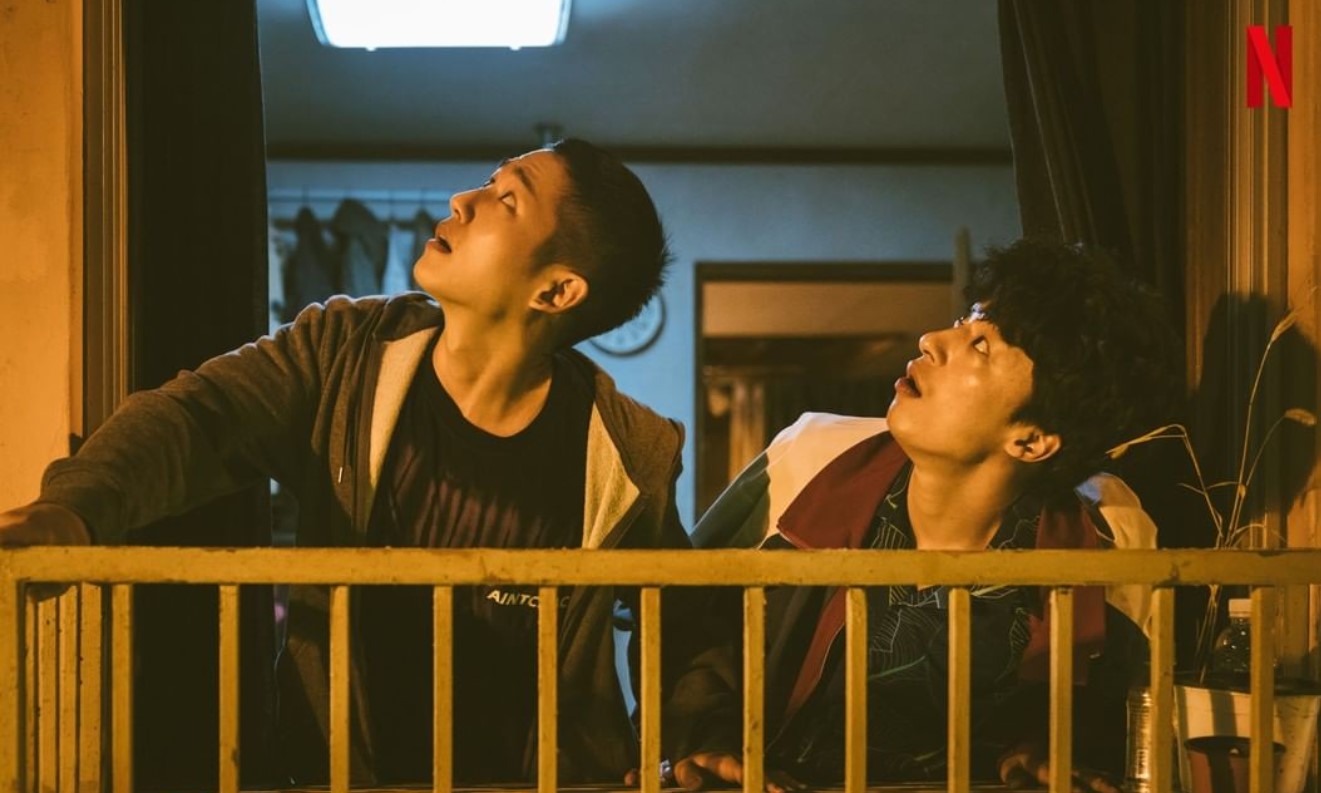 At first glance, DP may seem like just another gripping K-Drama—but dig deeper, and you’ll find that it offers real emotional value and speaks directly to social issues that are often ignored. More than entertainment, DP Season 1 becomes a mirror for society, and even a catalyst for awareness and healing.
At first glance, DP may seem like just another gripping K-Drama—but dig deeper, and you’ll find that it offers real emotional value and speaks directly to social issues that are often ignored. More than entertainment, DP Season 1 becomes a mirror for society, and even a catalyst for awareness and healing.
1. It Raises Awareness About Mental Health in Uniform
In a country where military service is mandatory, DP gives voice to thousands who suffer in silence. The drama shines a light on mental health struggles like depression, anxiety, and PTSD—especially within rigid institutions like the army. For viewers, it brings validation to feelings that are often dismissed or hidden.
Real-life value: If you’ve ever felt like you had to suppress pain to “be strong,” DP shows that your emotions are valid and worthy of attention.
2. It Confronts the Normalization of Abuse
DP exposes the toxic culture of hazing, bullying, and abuse of power within the military. These aren’t exaggerated plots—they reflect what many soldiers have experienced. By showing these patterns on screen, the drama encourages important conversations in real life about boundaries, trauma, and systemic change.
Real-life value: Viewers who have faced abuse—whether in school, work, or family—find resonance in the stories, and may even be inspired to speak out or seek help.
3. It Builds Empathy Through Human Stories
Every deserter in DP is given a backstory, not just a label. The show doesn’t ask “Why did they run?”—it asks “What pushed them to the edge?” This perspective encourages viewers to judge less and empathize more.
Real-life value: It reminds us to see people’s pain before we see their mistakes—a lesson we can apply in everyday relationships.
4. It Encourages Reflection on Morality and Conformity
DP challenges viewers to think: What would I do if I witnessed injustice? Would I speak up or stay silent? By placing characters in morally complex situations, it encourages personal reflection on conscience vs. conformity.
Real-life value: It empowers viewers to trust their inner voice and question unfair systems, whether in society, school, or even at home.
Why This Section Matters:
Unlike typical dramas that entertain and move on, DP sticks with you. It validates the invisible battles people fight daily. It gives language to the pain many can’t express. And most importantly, it offers hope—that acknowledging the truth is the first step to changing it.
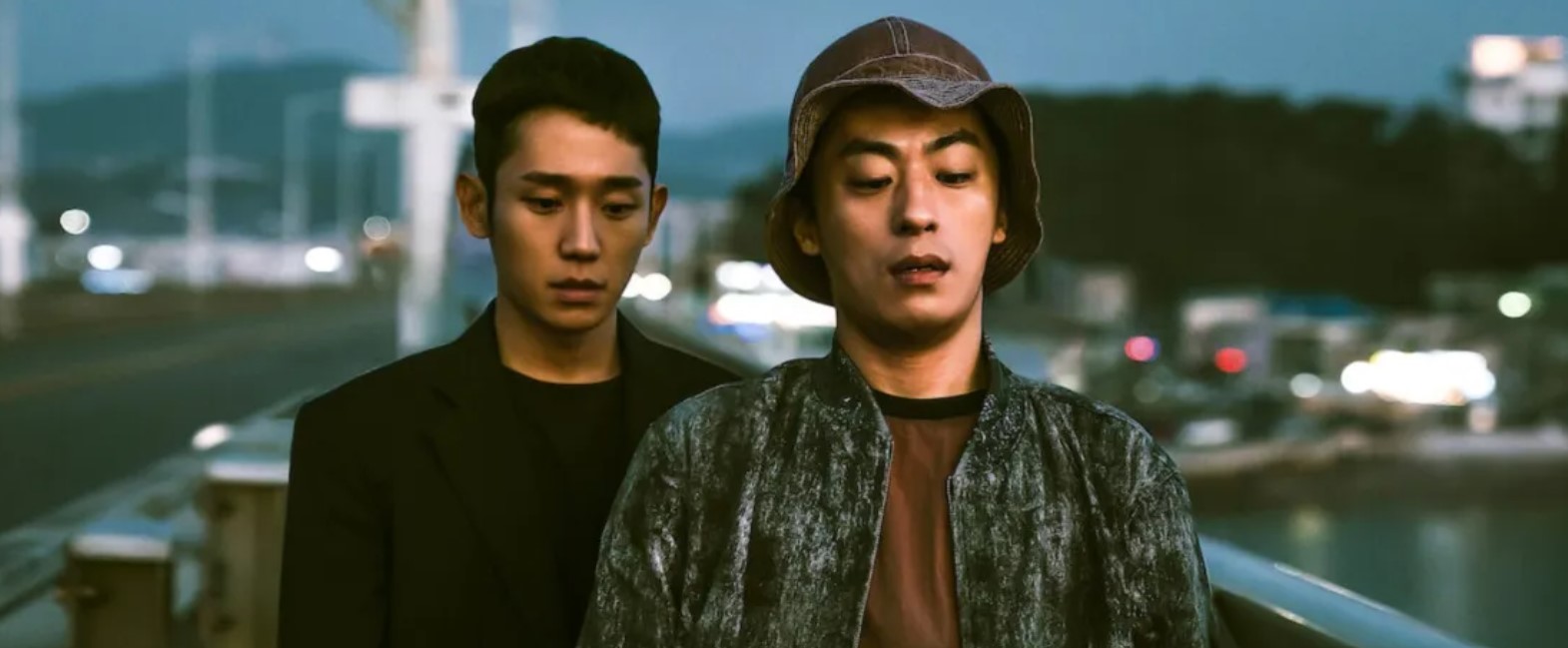 DP Season 1 is not just another military K-drama—it’s a bold, unflinching, and emotionally charged masterpiece that dares to expose the dark corners of duty, abuse, and human vulnerability. Through jaw-dropping moments, unforgettable performances, and a starkly realistic portrayal of systemic injustice, it pulls you into a world that’s both eye-opening and heart-wrenching.
DP Season 1 is not just another military K-drama—it’s a bold, unflinching, and emotionally charged masterpiece that dares to expose the dark corners of duty, abuse, and human vulnerability. Through jaw-dropping moments, unforgettable performances, and a starkly realistic portrayal of systemic injustice, it pulls you into a world that’s both eye-opening and heart-wrenching.
This isn’t a drama which sugarcoats pain. Instead, it asks difficult questions and forces us to look at the things we often choose to ignore—mental health, bullying, moral conflict, and the quiet suffering of those forced to stay silent. Yet, in doing so, DP becomes more than a series. It becomes a mirror, a conversation starter, and for many, a source of validation.
If you’re looking for a K-drama that combines deep social commentary, emotional authenticity, and masterful storytelling, then this is the one you can’t afford to skip.
Frequently Asked Questions (FAQs)
1. What is DP Season 1 about?
DP Season 1 follows a young soldier tasked with capturing military deserters while uncovering harsh realities like bullying, mental health struggles, and systemic abuse in the military. It’s a gripping drama that blends suspense with social commentary.
2. Is DP Season 1 based on a true story?
Yes, DP is inspired by a popular webtoon that draws from real-life accounts of military deserters in South Korea. While dramatized, the themes reflect genuine issues within the military system.
3. Where can I watch DP Season 1?
DP Season 1 is available for streaming on Netflix. You’ll need a subscription to watch all episodes.
4. Does DP Season 1 contain violent or mature content?
Yes, the series includes scenes depicting bullying, physical violence, and emotional trauma. It is recommended for mature audiences due to its intense and realistic portrayal of these themes.
5. Is there are a Second Season of DP?
Yes, there is a Second Season of DP
6. What makes DP different from other military dramas?
DP stands out by focusing on the psychological and social challenges faced by soldiers rather than just action. It highlights mental health, abuse, and moral dilemmas with emotional depth and realism.
7. Can watching DP help me understand mental health issues better?
Yes, DP sheds light on depression, anxiety, and trauma experienced by soldiers, encouraging empathy and awareness. It can help viewers recognize the importance of mental health in high-pressure environments.
8. Is DP suitable for viewers who are new to K-Dramas?
DP is intense and emotionally heavy, so it might not be the best choice for casual viewers or those new to K-Dramas. However, if you appreciate serious stories with social impact, it’s a must-watch.

